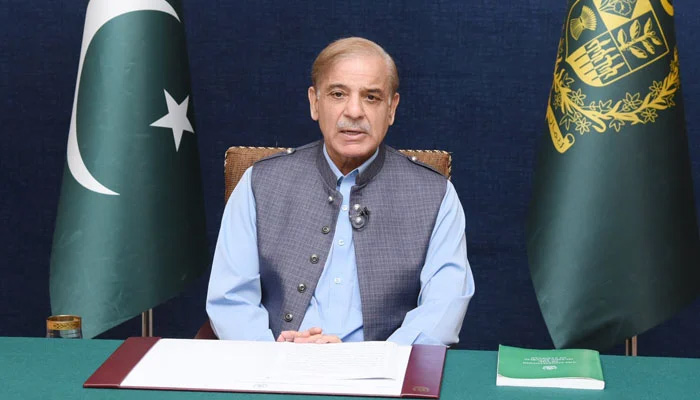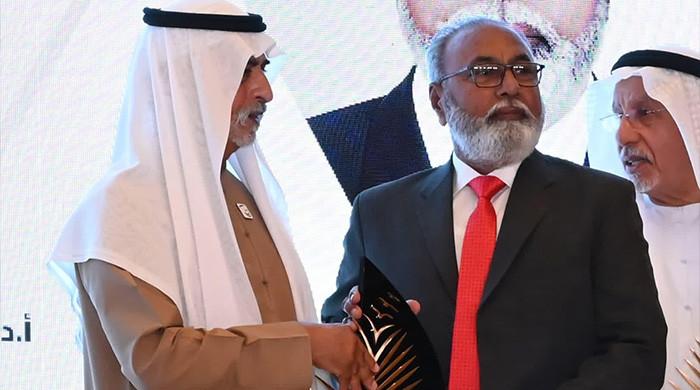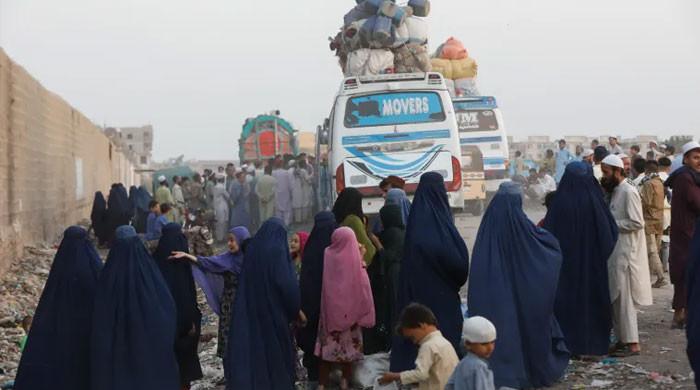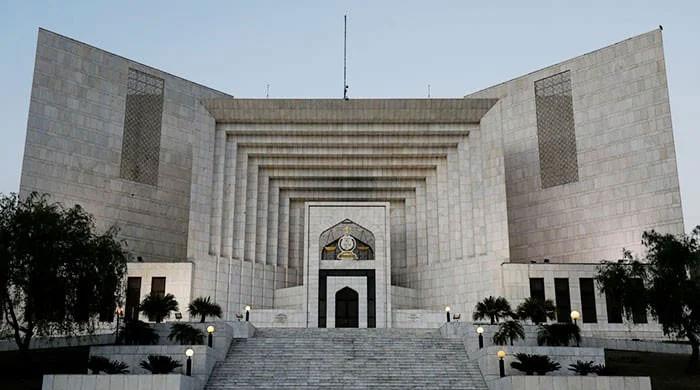Shehbaz 'proud of being apple of establishment's eye'
Outgoing premier admits his working relationship got better with military leadership in his 16-month tenure
August 13, 2023

- Remarks come at event before announcement of caretaker PM.
- PM Shehbaz speaks about economy, legislation and other issues.
- He says his relations with establishment always remained cordial.
ISLAMABAD: Outgoing Prime Minister Shehbaz Sharif has said he feels proud of being the apple of the establishment’s eye for the past 30 years, observing that a hybrid system that works for the country’s progress is better, The News reported.
The remark came during a farewell ceremony before the announcement about the country’s caretaker PM at the Prime Minister's House. Senior journalists and anchorpersons attended the event.
PM Shehbaz spoke about the economy, legislation, and the impression of increasing military influence in civilian matters, besides media freedom and other sensitive subjects during his 16-month tenure, in response to the media questions.
On this occasion, the prime minister was asked why, apart from promoting investment in the country, he was giving credit to Chief of Army Staff General Asim Munir for the success of the Bhara Kahu Bypass project.
In response, he said that the work on the Bhara Kahu project, a joint venture with the National Logistics Cell (NLC), had been slow so he asked the army chief to speed up the work.
He said that the army chief ensured the timely completion of the project, due to which he gave credit to him.
The PM also remarked that his relations with the establishment had remained cordial, not only with the current establishment but also with every establishment and he was proud of that.
During his conversation, the premier stated that throughout his time in office, he made concerted efforts not to react to both his criticism and praise for his performance in the media.
He spoke in detail about his government’s economic performance. He said his coalition government’s 16-month term was full of challenges, every front posed difficulties, and the most difficult challenge was in the economic field.
PM Shehbaz said that after the agreement with the International Monetary Fund (IMF), some stability was achieved in the economy, and the looming threats of default disappeared, but the issue of inflation persisted.
He admitted that his coalition government was unable to provide relief to the common man during the 16 months. However, he claimed that in the last four months of his government, inflation came down slightly, but more was needed to be done to bring it down further and provide relief to the common man.
Later, PM Shehbaz also responded to questions about the possibility of a delay in upcoming elections, hastily passed legislation in conflict with fundamental human rights, and the nature of civil-military relations during his government, besides various other sensitive issues.
A question was posed to the prime minister about why the amendments to the Army Act and Official Secrets Act were rushed through parliament without being sent to relevant parliamentary committees for deliberation, which also faced opposition from within coalition parties.
In response, the prime minister stated that the amendments to these laws were necessary. He gave the example of a recent incident where an intelligence officer was martyred on duty, and all the information was shared in the media and social media, causing difficulties for the martyr’s family.
Therefore, the amendments were necessary to the Official Secrets Act to prevent such incidents, he said.
During the conversation, questions were also raised about the military’s footprint and intervention in civilian and economic matters, to which the PM admitted that during his 16-month tenure, there had been an increase in his working relationship with the military leadership.
He stated that if the hybrid model is better for the country’s progress, there is no harm in it.
The prime minister said that the military is thinking about the country’s progress, and the establishment of the Special Investment Facilitation Council (SIFC) is an example of this, in which the military and civil leadership are working together for investment in sectors like agriculture, IT, and minerals.











